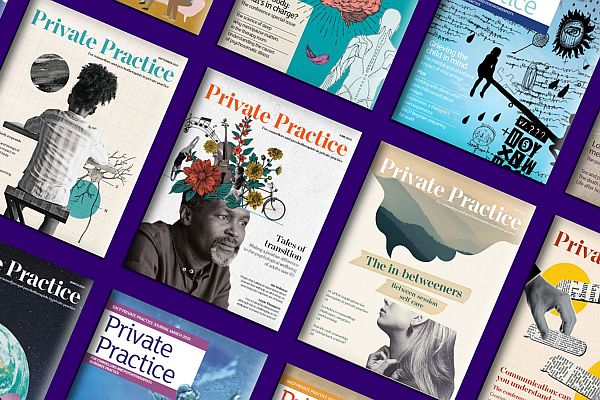I sensed from the start that working as a psychotherapist in private practice was never going to be my full-time occupation. In the first few years post qualification, I worked part time on a PAYE basis to have the security of a regular income while building a client base. In time, as I felt confident enough that if I made space, clients would come, I made the leap into being a full-time freelancer.
This did not mean, however, that I focused solely on my clinical work for an income. I knew that even if I had the appetite (I don’t) and the emotional capacity (ditto) to see clients for six or seven hours a day, five days a week, week in week out for 40 or so weeks a year, that this would not be good – either for me or my clients. I need other professional activities to provide a break from the intensity of clinical work, and nourishment of a different sort to then return to my consulting room with renewed interest and energy.
I also need the contact I get from colleagues in other professional environments to sustain me in what would otherwise be a lonely and isolating working life in private practice. Editing Private Practice has provided an outlet to continue to practise skills from a former career; ensured I’ve kept up to date with professional developments; and given me access to a wide range of fellow private practitioners. As have the opportunities I’ve had to work in a variety of teaching roles for several counselling and psychotherapy training providers.
Teaching and supervising trainees have been as much learning experiences for me as they have been for those I’ve played a small part in supporting through their trainings. Working at the coalface of the profession has kept my thinking about the role and function of counselling and psychotherapy in contemporary society current, in a way that might not otherwise have been possible.
And I’ve also returned periodically to being a student again to broaden my own learning. One thing I’ve learned for sure is that the more I know, the more I realise I don’t know. As a psychotherapist, I’ll never be the ‘finished product’, but always a work-in-progress. And this is a good thing.
My reason for writing about this is that, in this issue of Private Practice, we focus on work outside of the therapy room – ways that practitioners have expanded their professional portfolio by creating new and innovative products, associated services and other resources, among other things. Practitioners who presented at our annual conference in September write all eight of the features in this issue.
I know from experience that it’s sometimes easy to underestimate the impact that intensive and unremitting work in the consulting room can have on us. For those of us who, like me, rely solely on freelance work for our income, having alternative activities that can meet and (hopefully) satisfy the parts of us that client work alone cannot reach is vital.
Articles in the December 2022 issue include: Chris Sheridan arguing that the path to success in private practice comes from knowing your niche, Jeanine Connor sharing what she’s learned from her experience of being a published author in Do you have a book in you, Sharon McCormick's experience of setting up as an employee assistance provider in A gap in the market and Andrea Rippon explaining how group facilitation could become another string to add to your bow in Working with groups.



